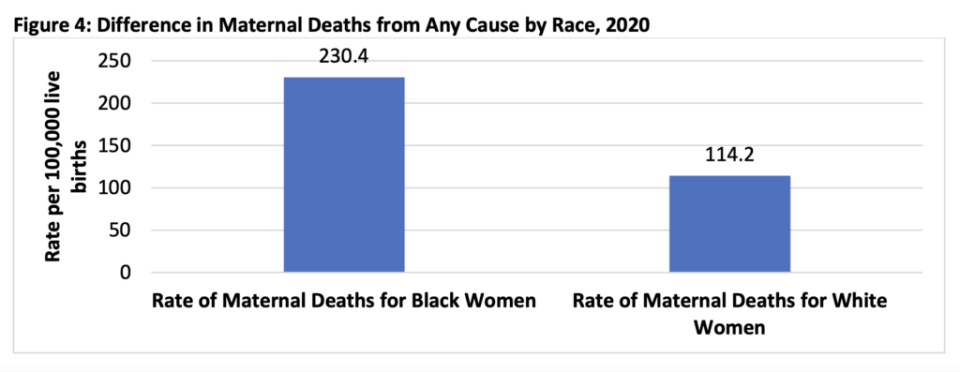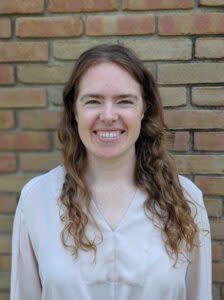Who called Kentucky abortion fund for help in the years before Roe v. Wade was overturned?

A “Bans off our bodies” pin was worn to an election night watch party in Louisville celebrating defeat of an anti-abortion constitutional amendment in Kentucky on Nov. 8, 2022. (Kentucky Lantern photo by Arden Barnes)
LOUISVILLE — Between 2014 and 2021, 6,162 people called the Kentucky Health Justice Network Abortion Support Fund to seek financial help to get an abortion.
In a new study published last week, researchers analyzed calls made to the abortion support fund and compared them with the Kentucky Department for Public Health’s records of abortions.
And while the available data paints a picture of life in the years before the United States Supreme Court overturned the constitutional right to abortion, researchers said they think the data is relevant in a post-Dobbs world.
“We talk a lot about reproductive autonomy and having the ability to make choices that are best for us and the reproductive context,” said Melissa Eggen, one of the researchers and a faculty member at the University of Louisville School of Public Health and Information Sciences. “And we know that in a post Dobbs world, that restrictive policies don’t allow for that agency or autonomy.”
After the U.S. Supreme Court overturned Roe V. Wade, which had guaranteed the constitutional right to abortion, in 2022, a “trigger law” went into effect in Kentucky that banned abortions. Another law bans abortions after six weeks. Doctors have previously said many people don’t know they’re pregnant at the six-week mark.
That same year, Kentucky voters rejected an anti-abortion amendment that would have stated definitely that there is no right to an abortion in Kentucky’s Constitution.
Kentucky does not have exceptions for rape or incest, though both Republican and Democratic lawmakers have filed unsuccessful bills to change that in recent years. There is an exception in cases where the life of the pregnant person is at risk.
Lawyers for the American Civil Liberties Union (ACLU) and others have argued to no avail that the restrictions Kentucky has in place are unconstitutional.
Eggen and her co-researchers found a higher percentage of people who called the abortion fund for help were Black, younger than 30 and further along in their pregnancies than the population in the KDPH’s abortion records.
They concluded young, Black Kentuckians were more likely to need financial assistance or emotional support to get an abortion. Medicaid, the federal-state program that pays for health care for lower-income people and those with disabilities, did not cover Kentucky abortions before the procedure was outlawed in most cases.
“We also know that those are people who are impacted most negatively by poor outcomes” during and after pregnancy, Eggen said.
In 2023, the KDPH found Black women were twice as likely to die around childbirth than their white counterparts. Kentucky is about 87% white, according to the United States Census Bureau. Meanwhile, about 9% of the population is Black and 4% is Hispanic.
For the June 21 study, “we’re looking at a period of time in Kentucky when abortion was getting more restricted, but we didn’t have a total ban,” said Mikaela Smith, a research scientist with Ohio Policy Evaluation Network at The Ohio State University.
“This can serve a little bit as a case study for states that still have abortion available, but are trying to further restrict it. So in that way, we can say…‘Hey, here’s what happened with Kentucky.’”
The study
Researchers sought to “assess characteristics of abortion fund callers” with their research.
To do so, they analyzed KHJN’s administration records showing the age, race and pregnancy gestation of people who called the abortion fund. They then compared those data points with abortion data from the public health department.
They found the fund “supported” — financially and otherwise — 6,162 people during the seven years before Roe V. Wade was overturned. During that time, 28,741 people had abortions in Kentucky.
The people who called for help in getting their abortions were more likely to be at least 14 weeks gestation.
“Compared with state data, KHJN supported a higher percentage of young people, people of color, and people at later gestations,” the report concluded. “These findings support evidence that structurally vulnerable groups are more likely to face barriers to care and that abortion funds provide essential support necessary for reproductive equity.”
These findings are “not too surprising,” Smith said. However, “being able to apply it in this specific political context felt really important.”
GET THE MORNING HEADLINES DELIVERED TO YOUR INBOX
The post Who called Kentucky abortion fund for help in the years before Roe v. Wade was overturned? appeared first on Kentucky Lantern.




